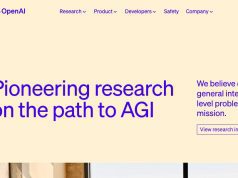United States Accounting Board Secures Full Access to Inspect China Firms for 1st Time in History, Inspected 8 Audit Work from KPMG Mainland China & PwC Hong Kong
16th December 2022 | Hong Kong
The United States Public Company Accounting Oversight Board (PCAOB) has secured full access to inspect China firms for the 1st time in history, inspecting 8 audit work from KPMG Mainland China & PwC Hong Kong. PCAOB Chair Erica Y. Williams: “For the first time in history, the PCAOB has secured complete access to inspect and investigate registered public accounting firms headquartered in mainland China and Hong Kong. And this morning the Board voted to vacate the previous determinations to the contrary. This historic and unprecedented access was only possible because of the leverage Congress created by passing the Holding Foreign Companies Accountable Act. Congress sent a clear message with that legislation that access to U.S. capital markets is a privilege and not a right, and China received that message loud and clear … … Today’s announcement should not be misconstrued in any way as a clean bill of health for firms in mainland China and Hong Kong. It is a recognition that, for the first time in history, we are able to perform full and thorough inspections and investigations to root out potential problems and hold firms accountable to fix them.” See below for full statement.
“ United States Accounting Board Secures Full Access to Inspect China Firms for 1st Time in History, Inspected 8 Audit Work from KPMG Mainland China & PwC Hong Kong “
United States Public Company Accounting Oversight Board – The PCAOB is a nonprofit corporation established by Congress to oversee the audits of public companies in order to protect investors and further the public interest in the preparation of informative, accurate, and independent audit reports. The PCAOB also oversees the audits of brokers and dealers, including compliance reports filed pursuant to federal securities laws.
PCAOB Secures Complete Access to Inspect, Investigate Chinese Firms for First Time in History

Chair Williams: Investors are more protected today because Congress passed the Holding Foreign Companies Accountable Act (HFCAA).
15th Dec 2022 – Public Company Accounting Oversight Board (PCAOB) Chair Erica Y. Williams released the following statement today after the Board determined the PCAOB was able to secure complete access to inspect and investigate audit firms in the People’s Republic of China (PRC) for the first time in history, in 2022.
Chair Williams: For the first time in history, the PCAOB has secured complete access to inspect and investigate registered public accounting firms headquartered in mainland China and Hong Kong. And this morning the Board voted to vacate the previous determinations to the contrary.
This historic and unprecedented access was only possible because of the leverage Congress created by passing the Holding Foreign Companies Accountable Act. Congress sent a clear message with that legislation that access to U.S. capital markets is a privilege and not a right, and China received that message loud and clear.
Investors are more protected today because of Congress’ leadership, and I want to thank Members of the House and the Senate for their ongoing work to hold China accountable.
I want to be clear: this is the beginning of our work to inspect and investigate firms in China, not the end. The PCAOB is continuing to demand complete access in mainland China and Hong Kong moving forward. Our teams are already making plans to resume regular inspections in early 2023 and beyond, as well as continuing to pursue investigations.
The Board does not have to wait another year to reassess its determinations. Should PRC authorities obstruct or otherwise fail to facilitate the PCAOB’s access – in any way and at any point in the future – the Board will act immediately to consider the need to issue a new determination.
It is important to understand: today’s announcement is about one question and one question only – is the PCAOB able to inspect and investigate firms in mainland China and Hong Kong completely at this time? The answer, following thorough and systematic testing, is yes.
What we found during the course of our inspections and investigations is a separate question that we will address through our typical inspection and enforcement processes, which are designed to protect investors.
Today’s announcement should not be misconstrued in any way as a clean bill of health for firms in mainland China and Hong Kong. It is a recognition that, for the first time in history, we are able to perform full and thorough inspections and investigations to root out potential problems and hold firms accountable to fix them.
We arrived at today’s decision only after thoroughly verifying China’s compliance.
More than 30 PCAOB staff members conducted on-site inspections and investigations in Hong Kong, reviewing thousands of pages of documents, conducting interviews and taking testimony over a nine-week period from September to November.
On behalf of the entire PCAOB Board, I want to thank those staff members for their dedication and commitment. Because of their sacrifices and hard work, investors are more protected today.
Our inspections team was more than double the size of a typical team for similar inspections, and they remained on the ground in Hong Kong for about three weeks longer than the typical timeframe.
Our teams were tough. They were thorough. They tested the PRC compliance with skepticism and rigor.
And because of their hard work and commitment to holding China accountable, the PCAOB secured each of the three criteria required to achieve complete access:
- One: The PCAOB exercised sole discretion to select the firms, audit engagements, and potential violations it inspected and investigated – without consultation with, nor input from, PRC authorities.
PCAOB staff selected two firms for inspection: KPMG Huazhen LLP in mainland China and PricewaterhouseCoopers in Hong Kong. And they inspected a total of eight engagements between the two firms.
Staff selected those firms using the same methodology they use in all PCAOB inspections, including consideration of risk factors posed by particular firms or issuer engagements.
The selected engagements included several from categories of audit engagements PRC authorities had denied access to in the past – including large state-owned enterprises and issuers in sensitive industries.
Neither the PRC authorities nor the firms had any input or influence over the selections, and neither were given advanced notice.
Separately, PCAOB staff also selected potential violations to be investigated consistent with regular practices and processes applied in the U.S. and around the world, without any input from or advance notice to PRC authorities, and PCAOB staff pursued all such investigations without interference. - Two: PCAOB inspectors and investigators were able to view complete audit work papers with no redactions, and the PCAOB was able to retain information needed to complete our work.
- And three: The PCAOB had direct access to interview and take testimony from all personnel associated with the audits the PCAOB inspected or investigated.
I have been clear from day one, there would be no loopholes and no exceptions to our demand for complete access, and there were none.
Our inspection reports are not yet finalized, but we are committed to releasing them as soon as possible in the new year.
Preliminarily, PCAOB staff have identified numerous potential deficiencies. Any deficiencies are troubling. At the same time, it is not unexpected to find numerous deficiencies in jurisdictions that are being inspected for the first time. And the potential deficiencies identified by PCAOB staff at the firms in mainland China and Hong Kong are consistent with the types and number of findings the PCAOB has encountered in other first-time inspections around the world.
The fact that we found those potential deficiencies is a sign that the inspection process worked as it is supposed to. This is exactly why Congress passed the HFCAA in the first place – so we could open up the books, identify potential problems, and begin the work of holding firms accountable to fix them. And that is exactly what we intend to do.
Again, this is the beginning of the PCAOB’s work to inspect and investigate firms in mainland China and Hong Kong, not the end. We are continuing to demand complete access, and we will act immediately to reconsider today’s determinations should China obstruct, or otherwise fail to facilitate our access, at any time.
I want to thank Chair Gensler and the Securities and Exchange Commission for their ongoing support, the incredible teams at the U.S. Embassy in Beijing and the U.S. consulate in Hong Kong who helped ensure the safety and security of our staff, my fellow PCAOB Board Members for their ongoing work, Members of Congress who made this possible through the passage of the HFCAA, and the PCAOB staff whose tireless efforts secured this historic access to protect investors.
Fact Sheet Released
PCAOB Secures Complete Access to Inspect, Investigate Chinese Firms for First Time in History. Investors Are More Protected Today Because of HFCAA
Unprecedented Access:
The United States Congress sent a clear message in passing the Holding Foreign Companies Accountable Act of 2020 (HFCAA) that access to U.S. capital markets is a privilege and not a right. Thanks to the HFCAA, the PCAOB was able to secure complete access to inspect and investigate audit firms in the People’s Republic of China (PRC) for the first time in history, in 2022. Therefore, on December 15, 2022, the PCAOB Board voted to vacate previous determinations to the contrary. Investors are now more protected because Congress acted, giving the PCAOB leverage through the HFCAA to secure this unprecedented access.
Thoroughly Tested:
Before determining that the PCAOB was able to inspect and investigate firms in mainland China and Hong Kong, completely, the PCAOB laid out three criteria required for achieving complete access: (1) the PCAOB must have sole discretion to select the firms, audit engagements, and potential violations it inspects and investigates – without consultation with, nor input from, PRC authorities; (2) PCAOB inspectors and investigators must be able to view complete audit work papers with all information included and to retain information as needed; and (3) the PCAOB must have direct access to interview and take testimony from all personnel associated with the audits the PCAOB inspects or investigates.
In August 2022, the PCAOB secured a written agreement with the China Securities Regulatory Commission (CSRC) and the Ministry of Finance of the PRC (MOF) outlining protocols for meeting each of the three criteria.
The PCAOB then thoroughly tested compliance with every aspect of the agreement necessary to determine complete access. This included sending more than 30 PCAOB staff to conduct on-site inspections and investigations in Hong Kong over a nine-week period from September to November. The PCAOB conducted inspection field work and investigative testimony in a manner fully consistent with the PCAOB’s methodology and approach to inspections and investigations in the U.S. and globally.
1. The PCAOB exercised sole discretion to select the firms, audit engagements, and potential violations it inspected and investigated – without consultation with, nor input from, PRC authorities.
Inspections
- Firms: The PCAOB selected two firms for inspection: KPMG Huazhen LLP in mainland China and PricewaterhouseCoopers in Hong Kong.
- PCAOB staff selected those firms based on the methodology used in all PCAOB inspections, including consideration of risk factors posed by particular firms or issuers, and with a focus on any audit areas believed to be of greater complexity or significance, or that pose a heightened risk of material misstatement to the issuers’ financial statements.
- Neither the PRC authorities nor the firms had any input or influence over the selections, and neither were notified of the selections until after the August agreement was signed. Only then were they notified in order to facilitate the inspections.
- Issuers: In order to measure compliance with the complete access required under U.S. law, PCAOB staff identified the types of audit engagements to which PRC authorities had previously denied access and made selections from that population of audit engagements, including issuer engagements that the PRC authorities have historically categorized as sensitive, such as large state-owned enterprises and issuers in sensitive industries.
- The PCAOB inspected a total of eight engagements between the two firms:
- The PCAOB initially selected three issuers at one firm and two issuers at the other.
- The PCAOB later added an additional selection of a referred work or substantial role engagement for each firm (i.e., one for which the firm was not the principal, signing auditor) after the firms provided more detail regarding such engagements through the inspections process.
- The PCAOB also selected an additional engagement for review at one of the firms, based on the disclosure by the firm to the PCAOB on the first day of field work of new information relevant to the PCAOB’s selection process.
- The PCAOB inspected a total of eight engagements between the two firms:
Investigations
- The PCAOB initiated two investigations of mainland China firms and one investigation of a Hong Kong firm in March of 2022, even before entering into the August agreement with the CSRC and MOF.
- PCAOB staff immediately began to issue document requests in all three matters, which the CSRC began facilitating in April, before the August agreement.
- PCAOB staff later opened additional investigations in mainland China and Hong Kong.
- PCAOB staff selected the potential violations to be investigated consistent with its regular practices and processes applied in the U.S. and around the world, without any input from or advance notice to PRC authorities, and PCAOB staff pursued all such investigations.
2. PCAOB inspectors and investigators were able to view complete audit work papers with all information included, and the PCAOB was able to retain information as needed.
- PCAOB inspectors reviewed thousands of pages of audit documentation on-site in Hong Kong.
- PRC authorities provided PCAOB inspectors with access to all audit documentation and other information requested as part of the inspections undertaken in the fall of 2022 without withholding or redacting any information, and they facilitated all of the interviews requested by the PCAOB during inspections field work from September through November 2022.
- All requested information was provided to the PCAOB timely and without exception.
- To test compliance with the agreement, the PCAOB requested that the transfer of documents take place on two occasions, with one batch transferred at the mid-point of inspection field work and a second batch transferred at the end of field work. PRC authorities met both deadlines and transferred to the PCAOB all documents, which were substantial in volume, as requested by the PCAOB to support the inspection work performed over the selected audit engagements.
3. The PCAOB had direct access to interview and take testimony from all personnel associated with the audits the PCAOB inspected or investigated.
- On August 22, 2022, PCAOB staff provided to the CSRC a list of witnesses whose testimony PCAOB staff intended to take in October and November 2022. The PCAOB selected those witnesses based on staff determination where witness testimony was necessary without any interference or input from PRC authorities.
- The CSRC arranged to have the witnesses appear for testimony pursuant to the PCAOB’s proposed timeline. PCAOB staff completed its scheduled testimony on November 11, 2022, as planned.
- In addition, the PRC authorities facilitated all of the interviews requested by the PCAOB during inspections field work from September through November 2022.
Ongoing Accountability:
The PCAOB is continuing to demand complete access in mainland China and Hong Kong moving forward and is already making plans to resume regular inspections in early 2023 and beyond, as well as to continue pursuing ongoing investigations and initiate new investigations as needed.
The Board does not have to wait another year to reassess its determinations. Should the PRC authorities obstruct the PCAOB’s access to inspect or investigate completely in any way and at any point, the Board will act immediately to consider the need to issue new determinations consistent with the HFCAA.
Investors Better Protected:
Investors are now more protected because the PCAOB has been able to inspect and investigate audit firms in mainland China and Hong Kong completely.
- PCAOB inspections will identify deficiencies that would have gone unchecked without this access.
- Final inspection reports will be completed and made public as soon as practicable in 2023.
- Preliminarily, PCAOB staff have identified numerous potential deficiencies, which are consistent with the types and number of findings the PCAOB has encountered in other first-time inspections around the world.
- Identifying these deficiencies is a necessary first step toward making sure they do not recur. This is exactly what inspections are designed to do and why complete access is so important.
- As with any oversight activities:
- Where it is warranted, deficiencies will be referred for investigation and potential sanctions.
- Any quality control deficiencies will be flagged for firms to correct within one year. When firms fail to correct quality control deficiencies to the Board’s satisfaction, the Board will make those deficiencies public for investors to consider when making decisions.
- Consistent with the law, additional deficiencies will be made public as part of the final inspection reports to be released in 2023, providing investors with information.
- While the Sarbanes-Oxley Act prohibits the PCAOB from providing details about specific investigations or ongoing litigation, the PCAOB will continue to pursue investigations in mainland China and Hong Kong and seek to hold wrongdoers accountable – promoting deterrence and ensuring there are consequences for those who put investors in harm’s way.
Additional Background:
The PCAOB inspects and investigates registered public accounting firms in more than 50 jurisdictions around the world, consistent with its mandate under the Sarbanes-Oxley Act. But the PCAOB’s access to inspect and investigate registered public accounting firms in mainland China and Hong Kong has always been obstructed.
In 2020, Congress passed the Holding Foreign Companies Accountable Act (HFCAA).
Under the HFCAA, beginning with 2021, after three consecutive years of PCAOB determinations that positions taken by authorities in the People’s Republic of China obstructed the PCAOB’s ability to inspect and investigate registered public accounting firms in mainland China and Hong Kong completely, the issuers audited by those firms would be subject to a trading prohibition on U.S. markets.
Such a trading prohibition would be carried out by the Securities and Exchange Commission (SEC) and would apply to companies the SEC identifies as having used registered public accounting firms in mainland China and Hong Kong for three consecutive years.
In 2021, the PCAOB made determinations that the positions taken by PRC authorities prevented the PCAOB from inspecting and investigating firms headquartered in mainland China and Hong Kong completely.
On August 26, 2022, the PCAOB signed a Statement of Protocol with the China Securities Regulatory Commission and the Ministry of Finance of the People’s Republic of China, taking the first step toward opening access for the PCAOB to inspect and investigate registered public accounting firms headquartered in mainland China and Hong Kong completely, consistent with U.S. law.
From September to November 2022, more than 30 PCAOB staff conducted on-site inspections and investigations in Hong Kong over a nine-week period, thoroughly testing all aspects of the agreement necessary to assess whether PRC Authorities would allow complete access.
Throughout the course of those inspections and investigations, PRC authorities did not obstruct the PCAOB’s ability to inspect and investigate completely, consistent with U.S. law. On December 15, 2022, the PCAOB Board voted to vacate the previous 2021 determinations.
Should PRC authorities obstruct the PCAOB’s access to inspect or investigate completely in any way and at any point in the future, the Board will act immediately to consider the need to issue new determinations consistent with the HFCAA.
The Public Company Accounting Oversight Board
United States Public Company Accounting Oversight Board – The PCAOB is a nonprofit corporation established by Congress to oversee the audits of public companies in order to protect investors and further the public interest in the preparation of informative, accurate, and independent audit reports. The PCAOB also oversees the audits of brokers and dealers, including compliance reports filed pursuant to federal securities laws.
Sign Up / Register
Caproasia Users
- Manage $20 million to $3 billion of assets
- Invest $3 million to $300 million
- Advise institutions, billionaires, UHNWs & HNWs
Caproasia Platforms | 11,000 Investors & Advisors
- Caproasia.com
- Caproasia Access
- Caproasia Events
- The Financial Centre | Find Services
- Membership
- Family Office Circle
- Professional Investor Circle
- Investor Relations Network
Monthly Roundtable & Networking
Family Office Programs
The 2025 Investment Day
- March - Hong Kong
- March - Singapore
- July - Hong Kong
- July - Singapore
- Sept- Hong Kong
- Sept - Singapore
- Oct- Hong Kong
- Nov - Singapore
- Visit: The Investment Day | Register: Click here
Caproasia Summits
- The Institutional Investor Summit
- The Investment / Alternatives Summit
- The Private Wealth Summit
- The Family Office Summit
- The CEO & Entrepreneur Summit
- The Capital Markets Summit
- The ESG / Sustainable Investment Summit









































